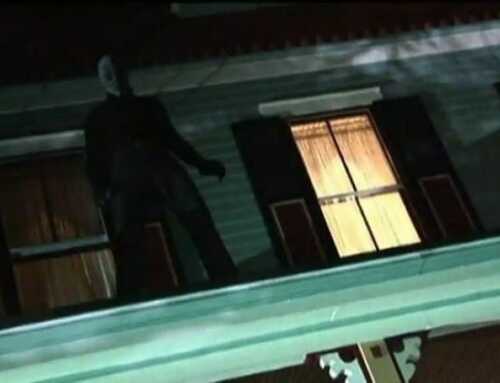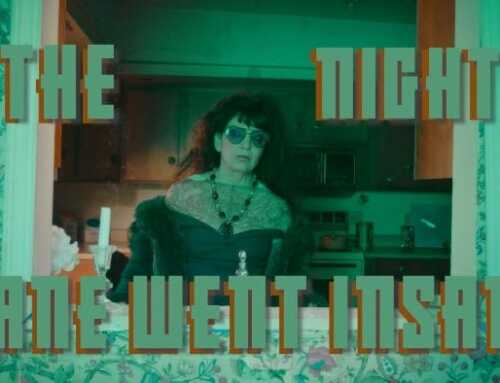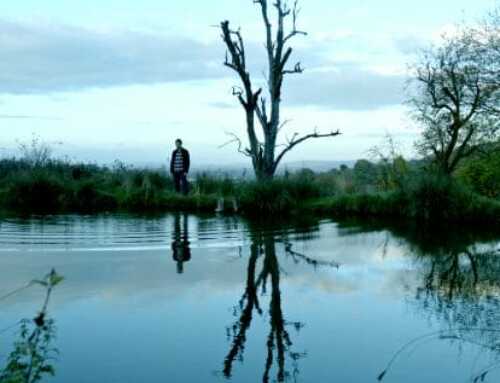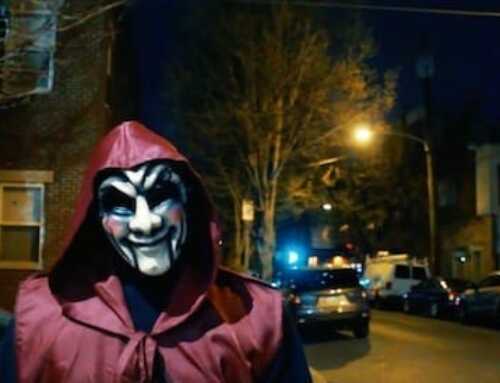**CONTENT WARNING: This review deals with a film about sexual assault and the fallout thereof. Readers are advised to proceed at their own discretion.**
Horror has long relied on throwing twisted reflections of our deepest fears at us. The most contentious pieces of horror are usually the ones that deal with things large percentages of us genuinely experience in our own lives: mental illness, disability, domestic abuse, and, in the case of Take Back the Night, sexual assault. Portrayals of these sensitive subjects tread a thin line between sensationalism (Evil Dead) and sympathy (American Mary). How much agency the victim has, and whether they’re portrayed as a victim at all, can end up being the deciding factor in whether audiences appreciate or hate a film. (For the record, I do love Evil Dead, but the tree scene is just uncomfortable and gratuitous, so I understand anyone who does hate it because of that.)
Jane (Emma Fitzpatrick) is a visual artist who’s just reached a career milestone: her first sold-out gallery opening. Riding the high of her success, Jane lets the night take her where it will, experimenting with substances and random hookups recklessly. But, when she leaves to help another partygoer to her cab, she finds herself locked out of the party and very, very alone. Until she’s attacked by a swirling, stinking shadow creature. She makes it to the hospital, and meets with a detective (Jennifer Lafleur, The Midnight Swim) who assures her that everything will be okay, and that they’re going to find whoever did this to her. Jane’s sister (Angela Gulner) comes around to take care of her, and it seems like maybe everything is going to be okay.
Then the detective starts finding holes in Jane’s story. Jane’s past, her mother’s schizophrenia, and her Instagram-influencer lifestyle cast Jane in a suspicious light, and very few people seem to be on her side anymore. Then, Jane is attacked again. But, now that the internet rumor mill has started churning, trying to be taken seriously seems to be one step forward, two steps back for Jane. Women with similar experiences and similar scars come forward, then physical evidence that seems counter to Jane’s testimony appears. Can Jane convince the world to believe her before the world convinces her she’s lying?
Take Back the Night is a film I’m honestly not sure how to react to. I want to say that Jane, as a character, is meant as a representation of the “imperfect victim.” Yeah, she drank and did drugs before she got attacked. Yeah, she loudly plastered her testimony across the internet with her face and name attached for the world to see instead of cowering in her room waiting for the “proper authorities” to take care of things. That doesn’t make her less worthy of help, understanding, and compassion. But narratively, the detective is right to doubt her. There are a lot of holes in Jane’s story that don’t get explained, and that makes Jane’s almost flippant attitude suspicious. And if the point of the film is that we should believe victims of sexual assault, making your viewer wonder whether your protagonist is pulling a stunt for attention after all seems counterintuitive. Jane tends to come across as an exaggeration of herself, which, while somewhat realistic, doesn’t exactly work in her – or the film’s – favor.
Maybe I missed something, but I don’t think that, as it is, Take Back the Night sends its own message effectively.
4 out of 10
| Take Back the Night | ||
| RATING: | NR |
Take Back The Night - Official Movie Trailer (2022) |
| Runtime: | 1 Hr. 30 Mins. | |
| Directed By: | ||
| Written By: | ||







